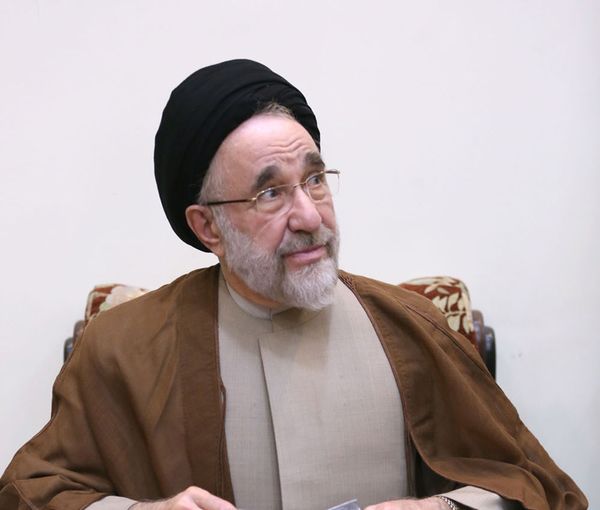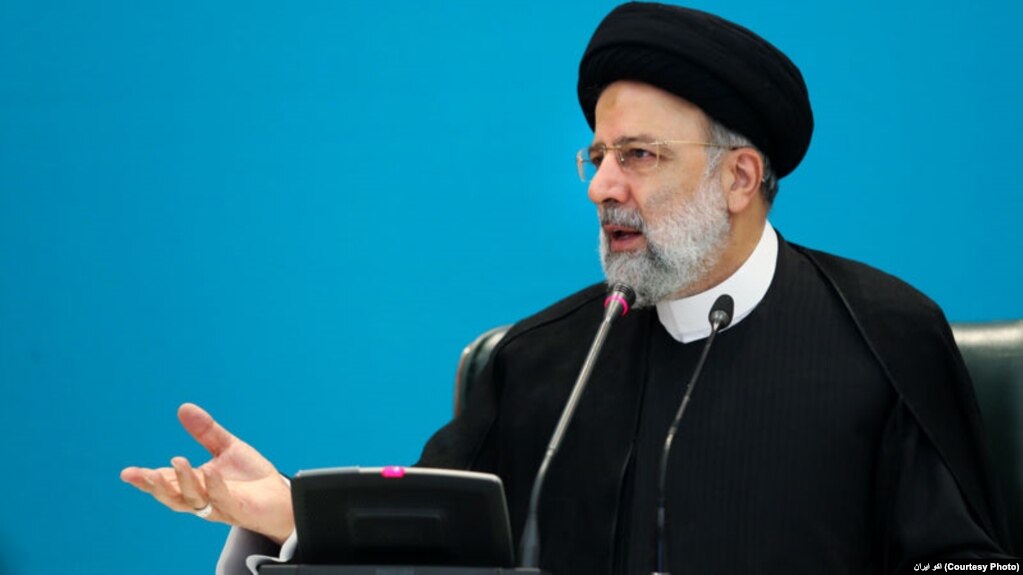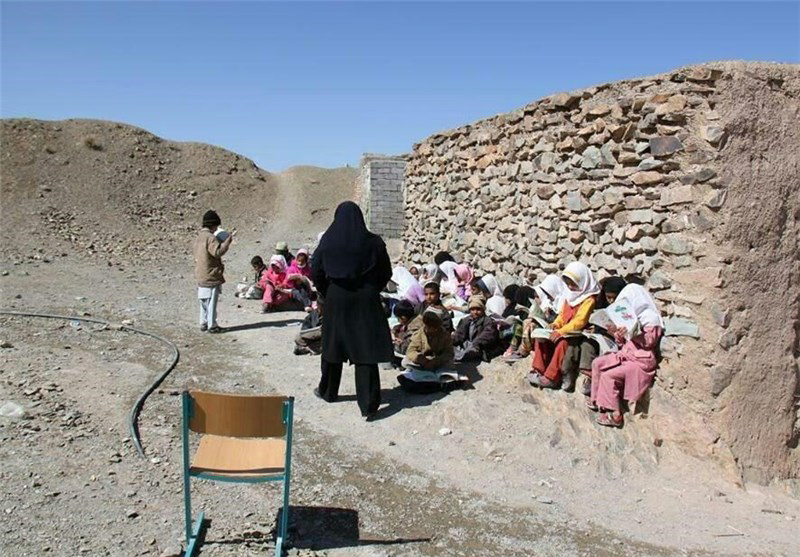
Zoom the Cameras in on Everyone!
The editorial of Hamdeli addresses the news of the government trying to monitor all aspects of people’s private lives, arguing that if so, the lives of officials and their children too must be fully monitored and exposed.
Things are getting worse every day. One day it is about installing Chinese cameras on streets for identifying and fining women who do not comply with compulsory hijab. And today they are talking about monitoring people’s lifestyles: the Iranian government wants to know what people eat, what they wear, who their friends are, what cars they drive, what cellphones they use, how they travel, what size their houses are and what their incomes are.
The establishment is also going to see if people are living a luxurious or a normal life, if they have any moral issues, if they have extra-marital relations, if they say their prayers and fast, if they tell lies or not. And if people are not complying with religious precepts, the government is going to rectify their ways of life to lead them to Paradise!
At first, monitoring people’s lifestyles might seem more like a joke because everybody knows that means the establishment intruding upon people’s private lives. A private life has certain requirements and no one likes to see his or her privacy being violated.
Moreover, the government’s task is to monitor the public sphere and raise living standards in line with human development goals. So, if they are serious about this, it entails violating citizens’ privacy. This will lead to measures like those taken by Stalin in former Soviet Russia or Kim Jong Un in North Korea.
Despite all the fair criticisms that can be made against the violation of citizens’ private lives, it might actually have some benefits as well. For example, the government and officials might realize that half of the population is suffering profoundly from living below the poverty line; the rate of inflation, unemployment, divorce, addiction, suicide, prostitution, depression, hopelessness, etc. has grown in people’s ordinary lives like cancer. Most of the country’s wealth is possessed by 4% of the population, while owning a house has become an unachievable dream and meat has been actually eliminated from people’s tables which are shrinking hourly, and people cannot buy even bread, potatoes and onions.
If the government is serious in this regard, it will have another benefit as well. The cameras will expose the lifestyles of officials and their children. Now, the question is: do officials and their children agree to have cameras zoom in on their private lives? Will they allow cameras to record their corruption, embezzlement, money laundering and rent seeking?
The Government’s Focus on Controlling Inflation
The editorial of Kasb-o-kar explains why it has become impossible to control the inflation rate.
Controlling the level of liquidity can contain inflation. It is easy to control inflation because by controlling liquidity, the government can contain inflation. But since the problem with liquidity is in the public budget and the government has to borrow from the Central Bank to meet its expenses, it cannot be controlled.
Under the current circumstances, the government will certainly decrease its current budget to contain inflation. Growth in production depends on growth in foreign and domestic investments, while relying on the private sector can better people’s lives and increase production. This year, if the government makes these reforms, it can contain inflation and increase production.
These days, the devaluation of the national currency is evident more than ever. People’s purchasing power has considerably plunged. Because of high inflation, people have no choice but to drop basic goods from their livelihood basket – an issue that can be seen in people not buying even meat, chicken, dairy, etc.
This will have a negative impact on society. The government must find a way to fulfill its promises in the monetary and financial sector. It was promised that inflation would be controlled and would be decreased to less than 10%. It was also promised that the inflation rate would be slashed in the first year of the government taking office. But we are now witnessing skyrocketing inflation. Because of the sanctions on Iran, problems in the manufacturing sector and the social and economic spheres, inflation keeps on skyrocketing.
People have lost trust in the government’s ability to control inflation. In addition to changes in economic policy, controlling liquidity and increasing people’s real incomes, the government’s relationship with the people too must be fixed. For controlling inflation, economic policy must change. In addition, the government must focus on controlling liquidity, increasing real incomes and improving people’s living standards.
The Seventh Development Plan From the Perspective of Economic Justice
The editorial of Tejarat argues that the Seventh Development Plan undermines workers’ rights and makes unrealistic claims about economic growth and controlling the inflation rate.
From the outset, Ebrahim Raisi’s government made claims that “we can do this and that without lifting the sanctions, we can bring down the inflation rate to a single digit, we can create 1 million jobs per year, etc.” Now it seems that such claims are strongly echoed in the Seventh Development Plan.
But at the same time, it is absolutely right to say that the Seventh Development Plan is against workers — an issue that is not just confined to this plan. This can be seen in the government’s annual budget bills.
Overall, the government seeks to compensate for the pressure it has to face by putting pressure on the people, and this has always targeted workers. On the one hand, the government resists a fair increase in wages; on the other hand, it is after putting more pressure on pensioners’ retirement funds.
As pension funds have been depleted because of officials’ incompetence, they are after manipulating the age of retirement and making other such changes to dissipate the traces of this depletion.
So, we can say that because the government has not been able to overcome the problems due to international sanctions and is now facing a revenue crisis, it is trying to alleviate the pressure on itself in any possible way and increase its revenues, even if that includes increasing taxes and introducing measures that adversely affect workers.
Now, even if sanctions are lifted and even if the FATF bills are ratified by Iran, the government will not be able to achieve 8% economic growth because of its flawed structure and the way its managers are appointed.
Changing Ministers Will Not Resolve Any Issues
The editorial of Arman Melli argues that changing individuals who are appointed to high positions will not resolve the crises Iran is dealing with because the existing problems are deeply rooted within the existing structures.
The crises that exist in Ebrahim Raisi’s government can no longer be resolved for different reasons, and even changing ministers cannot help in resolving these crises. We might think that replacing individuals might help in resolving the crises, but these crises are not because of the individuals and are rooted within the existing structures of the country.
When a government has taken office with a radical foreign policy position and chants slogans against the West, it must expect an increase in pressure and sanctions by the West.
Ebrahim Raisi’s government, of course, is proud of calling itself “revolutionary.” So when it is proud of these things, then it must expect to face challenges with big Western countries, Israel, and even Arab countries in the Middle East and the Gulf states.
When these problems augment, people expect the government to resolve the issues. Every day they wake up to see that prices have risen and forex rates remain uncontrolled. They ask themselves, how come the government cannot sell oil in the international market? How come the sanctions are not lifted by signing the nuclear deal with Western countries?
Raisi’s government vowed to resolve the nuclear deal issue in the shortest period of time. How come it has not been able to do so? Similar issues are raised about political and civil freedoms as well as national security. Border guards are killed almost every day – a reminder that the instability created along the western and eastern borders must be properly resolved by taking security measures.
The other issue that must be properly dealt with is the issue of freedoms, the press and the internet over which there is so much security control. Interestingly, the internet is also cut off in government offices and organizations. This reflects the fact that the infrastructure for the internet in Iran is old and the government has not been able to resolve this issue. The government also faces environmental challenges and problems with regard to exports and imports, telecommunications, health, etc.
So, whenever there is a problem in any field, the government’s only solution is to replace the minister or the minister will resign. But both the government and the Parliament know that changing the minister is not going to resolve the issue.

Battle Over Muharram Ceremony Between the Government and the People

The month of Muharram, especially its first 10 days leading to the ninth and 10th (known as Tasua and Ashura), has a high place in the Iranian government’s calendar. Mourning ceremonies are annually held all over the country to commemorate the martyrdom of Imam Hussein and his companions 1,400 years ago.
However, this year, Muharram had a different significance for Iranians. Along with the arrival of the month of Muharram and the Iranian government’s annual attempt to take political advantage of this month, the government’s opponents have made comparisons between its measures against its citizens and the historical events of Ashura.
At the same time, with only two months to the death anniversary of Mahsa Amini who died in morality police custody, mourning songs that were critical of the Iranian government and even Supreme Leader Ali Khamenei went viral.
Many Iranian social network users pointed to their own living conditions and called it living in a “contemporary Ashura,” stating that they do not need to mourn for Ashura which took place 1,400 years ago.
At the beginning of the month of Muharram, families whose loved ones were killed by Iranian security forces suggested that people should avoid wearing black clothes — which is indicative of mourning for Imam Hussein — and must wear white instead.
There are also images of women who stand in front of religious delegations without wearing the hijab — an act unimaginable before.
Also, videoclips of the Muharram ceremony in different cities were released in which the issues of poverty and high prices in Iran were mentioned.
In an unprecedented move, those participating in the Muharram ceremony in the city of Zanjan avoided walking on the flags of the United States and Israel.
In the meantime, the Iranian government continues to persecute women who do not comply with the mandatory hijab rules, and in recent months there were reports of summoning, arresting and issuing harsh sentences to protesters, especially women.
The measures taken by people in defiance of the way in which the Muharram ceremony is held has infuriated the proponents of the Iranian establishment.
Hashem Hosseini Bushehri, head of the Society of Seminary Teachers of Qom, described such measures as an act that would only make the “enemy happy.”
Mandatory Hijab Cannot Be Legally Enforced

A number of lawyers, sociologists and seminary representatives have published a pamphlet called “The Problem of Hijab; Facts and Solutions” with an introduction penned by former President Mohammad Khatami, in which it is urged that “hijab cannot be enforced by law,” suggesting that a referendum must be held on the issue of forced hijab.
In the introduction, Khatami states that the government’s official encounter with the issue of hijab has turned into a crisis. Then he goes on to ask, “Has it been reasonable and fruitful for the government to make hijab compulsory? Is it permissible to confront the issue of the hijab in ways that damage collective interests?”
Khatami underscores that what is contentious is that the government is trying to “put on a tight dress on the body of a diverse society.”
The former president warns that the increase in the number of low-income and poor people in Iranian society has resulted in protests against the policies of the government and the religious establishment.
The pamphlet concludes that the solution is not doubling down on enforcing hijab, urging that resisting people’s demand to choose their own dress codes will only make them have higher demands.
It also underscores that while the hijab has become an “identity issue” for the government, many citizens do not necessarily see it that way.
In the meantime, a bill about the hijab is on the Iranian Parliament’s agenda. All three branches were involved in formulating it, and if ratified, much tougher rules and restrictions will turn into law for implementing forced hijab on women.
In the bill which is called “Protecting Family Through Promoting the Culture of Chastity and Hijab,” the “violators” will be receive punishments including arrest and the payment of cash fines. Gender segregation will also be enforced in certain public spaces.
Despite all the restrictions on women, every day there are plenty of reports of women’s civil disobedience by not complying with forced hijab.
Number of Workers Committing Suicide After Being Fired Is on the Rise
Another worker took his own life after he was sacked from a petrochemical company in a southwestern city.
After 18 years of work for Ilam Petrochemical Company, Heydar Mohseni, father of two, hanged himself at home upon receiving his termination notice.
According to ILNA, four workers at Ilam Petrochemical Company have committed suicide in the last year alone.
Following this catastrophe, workers held a protest assembly in front of the governor’s office, calling for the dismissal and punishment of those who fired Mohseni. In reaction, the authorities said that some of the directors of this company were banned from entering their workplace.
The workers of this company, however, told ILNA, “Nothing is clear yet and nothing has happened; they just promised that those responsible for firing this worker would be fired in a week, but no one was fired, nor were their names announced to us.”
Last summer, two workers at the same company, Mohammad Mansouri and Ali Mohammad Karimi, ended their own lives as well. Moreover, another man working for Ilam Petrochemical Co., Arash Tabarok, took his own life by taking aluminum phosphide pills.
Suicide rates have significantly increased in Iran due to poverty, injustice, corruption and increasing government repression.
Raisi’s Government Officially Goes to the International Court of Arbitration to Reclaim Money From South Korea

In an official letter to the Iranian Parliament, Ebrahim Raisi’s government announced filing a lawsuit against South Korea to reclaim Iran’s $7 billion from South Korea.
The letter addressed to Parliament Speaker Mohammad Bagher Ghalibaf states that the disagreement between Iran’s Central Bank and the South Korean government has been referred to the International Court of Arbitration.
Over the past months, government officials have reiterated claims of receiving this money from South Korea – a claim eventually proved false by this letter.
Following the US withdrawal from the nuclear deal and the reinstatement of sanctions on Iran, Tehran and Seoul have disagreed over Iran’s frozen money in South Korean banks.
This sum of $7 billion represents Iran’s oil exports to South Korea and in recent years Tehran has been trying to find ways for claiming this money. Prior to the United States pulling out of the nuclear deal, Seoul was a regular purchaser of Iran’s oil.
Last year, the Iranian media claimed that an agreement was reached for releasing Iran’s frozen money in South Korea in lieu of releasing Baquer Namazi, an Iranian-American citizen who was in custody in Iran, but that claim was refuted by US administration officials a few days afterwards.
Iranian officials’ claims about recovering this money have become repetitious, which has resulted in social network users poking fun at Ebrahim Raisi’s government for saying that this money has been reclaimed “hundreds of times.”
IMF statistics are indicative of Iranian government’s debt reaching $100 billion, which is one third of Iran’s GDP while it is predicted that $12 billion will be added to this debt this year.
Teachers Are Emigrating From Border Regions

A report has been released outlining the reasons for the dearth of teachers in remote and deprived regions, underscoring that teachers are seeking to depart from these regions, while in only one case, 2,300 non-indigenous teachers have been transferred from the eastern Province of Sistan and Balochistan.
According to the report, the head of the Cultural Committee in the Iranian Parliament had announced the shortage of 300,000 teachers with the retirement of 100,000 teachers every year. This year, for example, there is a shortage of 12,000 teachers in Sistan and Balochistan.
Fars Province also suffers from a shortage of 10,300 workers, and the western Province of Kurdistan too is in need of 3,046 teachers.
Recently, the eastern city of Iranshahr’s MP in the Parliament’s open session confirmed the shortage of teachers in deprived regions, which has been the main cause of the cancellation of classes.
Teachers employed in deprived regions are facing numerous problems, as a result of which few are willing to work in these regions.
The report underscores that teaching in deprived villages means having zero facilities: no transportation and no access to basic services. Teachers in these regions have to pay out of their own pockets to reach classes and have no access to phones, the internet, and in some regions, they do not even have access to toilets.
Conditions in these deprived regions are so tough that non-indigenous teachers can hardly survive in these regions, says a teacher.
In the meantime, in recent years, we have seen teachers’ dissatisfaction with their working conditions reaching its peak, and they have held numerous gatherings to press for their demands.
